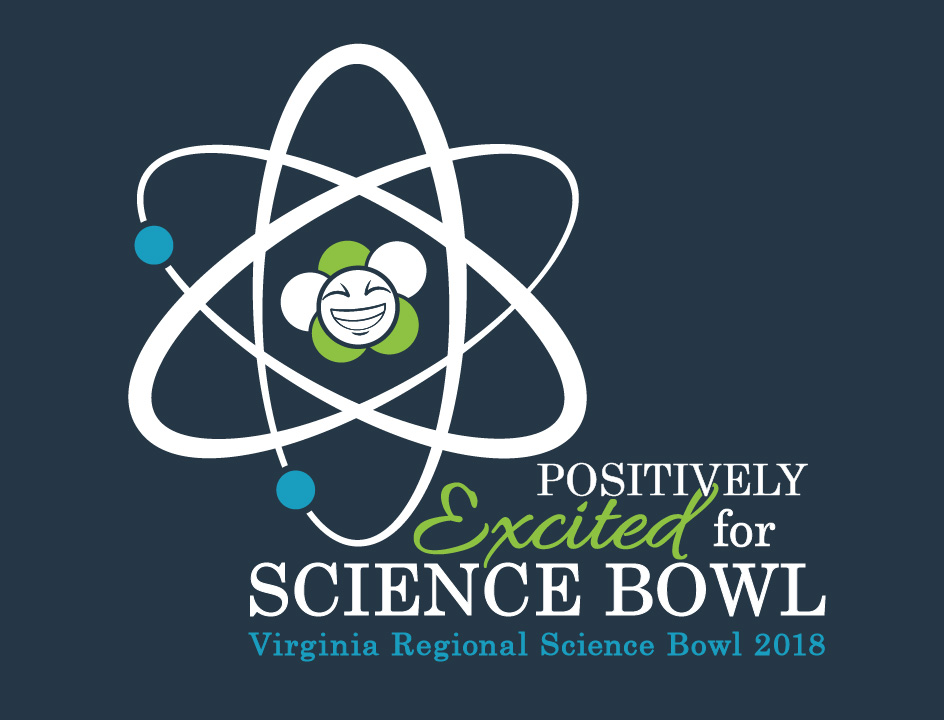Thirteen teams prepare to compete at Jefferson Lab on February 3
NEWPORT NEWS, VA – Excitement is building at Jefferson Lab as the date for the Virginia Regional High School Science Bowl draws near. The lab will welcome 13 teams to this year’s event on Saturday, February 3.
“We are looking forward to the teams and their coaches and family members attending the day-long academic tournament,” comments Christine Wheeler, Jefferson Lab Science Education administrator. “We can’t wait for the students to tackle the questions they will encounter this year.”
The National Science Bowl® has been sponsored annually by the Department of Energy’s Office of Science since 1991. Since the inception of the National Science Bowl®, approximately 275,000 middle and high school students have participated in tournaments around the country. The competition is meant to encourage students to excel in math and science and to pursue careers in science, technology, engineering and math.
Teams are comprised of four students, one alternate, and a teacher who serves as an advisor and coach. The teams face off in an intense question-and-answer format where contestants are quizzed on their knowledge of math and a range of science disciplines, including biology, chemistry, Earth science, physics and energy.
“This event can open doors of knowledge and opportunity for students," notes Wheeler. “Participating in the National Science Bowl® encourages students to explore math and science outside of the classroom, helping them to excel academically and preparing them for careers in STEM fields.”
The top three teams at the regional competition on Feb. 3 will earn cash prizes and team trophies for their respective schools. The top team also wins an expenses-paid trip to the National Science Bowl® finals to be held in Washington, D.C., April 26–30.
Nearly 50 volunteers will conduct the competition. “This is a wonderful way for students to gain exposure to scientists, engineers and innovators. Our volunteers can provide the students with valuable insight into a variety of career opportunities, including research careers within the Department of Energy and national laboratory system,” Wheeler says.
The afternoon semi-final and final rounds begin around 1:45 p.m. in the CEBAF Center auditorium, located at 12000 Jefferson Ave., and will be open to the public. Seating in the auditorium is limited and available on a first-come, first-served basis. People arriving once capacity has been reached will be turned away. All those under age 16 must be accompanied by a parent or responsible adult. Everyone over 16 is asked to carry a valid photo ID. Security guards may perform ID, parcel and vehicle checks.
Virginia schools registered for the competition include (in alphabetical order):
Charlottesville High School, Charlottesville
Hayfield Secondary School, Alexandria
Hickory High School, Chesapeake
Langley High School, McLean
Maggie L. Walker Governor’s School for Government and International Studies, Richmond
New Horizons Governor’s School for Science and Technology, Hampton
Patrick Henry High School, Ashland
Patriot High School, Nokesville
St. Christopher’s School, Richmond
St. Stephen's & St. Agnes School, Alexandria
Thomas Jefferson High School for Science and Technology, Alexandria
Westfield High School, Chantilly
York High School, Yorktown
Jefferson Lab will also host the Virginia Regional Middle School Science Bowl on Saturday, March 3.
Learn more about DOE's National Science Bowl® competition at: https://science.energy.gov/wdts/nsb/ .
Contact: Deb Magaldi, Jefferson Lab Communications Office, 757-269-5102, magaldi@jlab.org


